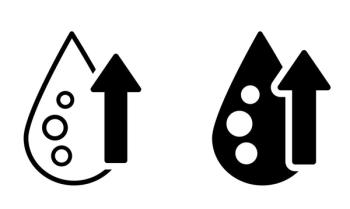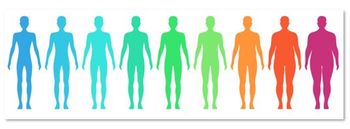
AHA Recommends Less Fat and Sugar and More Exercise
DALLAS - The American Heart Association in a set of recommendations on "healthy living" has taken new aim at consumption of saturated fats and trans fats.
DALLAS, June 20 - The American Heart Association is taking new aim at the consumption of saturated fats and trans fats.
In the latest iteration of its "healthy living" guidelines, the association broadened its concept of a healthy lifestyle with a diet recommendation that has a strict limit on trans fats.
The healthy living recommendations, which updated those issued in 2000, said that less than 7% of calories should come from saturated fat and less than 1% from trans fats. The old guidelines recommended that saturated fats and trans fats should be limited to 10% of daily calorie requirements.
Alice H. Lichtenstein, D.Sc., of Tufts, who chairs the AHA's Nutrition Committee, said the association has always emphasized the value of healthy diets but the new recommendations "broadened that concept to include the importance of a healthy lifestyle pattern." Healthy lifestyle and healthy diet should be inseparable she said. Dr. Lichtenstein is director of the Cardiovascular Nutrition Laboratory at the Jean Mayer USDA Human Nutrition Research Center on Aging.
To the inseparable end, the new guidelines recommended a cholesterol intake of less than 300 mg a day and incorporated other well-known association goals such as smoking cessation and increased exercise. The guidelines were published online by Circulation, Journal of the American Heart Association.
Diet, the AHA said, should include at least two servings of fish-preferably oily fish that is rich in very long chain omega-3-fatty acids-each week. But wary of about mercury contamination in fish, the AHA suggested that fish with the highest potential for contamination (shark, swordfish, king mackerel, or tilefish) should be avoided.
Other recommendations:
- Minimize intake of sugared beverages.
- Limit daily sodium intake to 2.3 gram/day (100 mmol/day) by limiting processed foods and avoiding use of salt when preparing foods.
- Limit alcohol to two drinks per day for men and one for women.
In general, the AHA's new prescription for a heart healthy lifestyle has a familiar ring. It advised Americans to "consume an overall healthy diet; aim for a healthy body weight; aim for recommended levels of LDL cholesterol, HDL cholesterol and triglycerides; aim for normal blood pressure; aim for a normal blood glucose level; be physically active; and avoid use of and exposure to tobacco products."
The AHA said evidence is either non-existent or too weak to support a cardiovascular benefit for antioxidants supplements, soy protein, folate and other B vitamin, and phytochemicals like the flavonoids found in cocoa-rich dark chocolate.
The recommendations also said that children older than two years should eat a diet consistent with the AHA 2006 Diet and Lifestyle Recommendations and maintain appropriate growth while lowering risk for future cardiovascular disease.
Physical activity and weight management were recommended to prevent metabolic syndrome, but very-low-fat diets should be avoided if elevated triglyceride or depressed HDL cholesterol levels are present, the AHA guidelines said.
Dietary recommendations, especially reduced sodium intake, are also applicable to people with chronic kidney disease, he association said.
Poor people have a higher incidence of cardiovascular disease than wealthier people, so diet and lifestyle modification recommendations are should also be advocated for socioeconomic groups considered high risk.
Newsletter
Enhance your clinical practice with the Patient Care newsletter, offering the latest evidence-based guidelines, diagnostic insights, and treatment strategies for primary care physicians.

































































































































